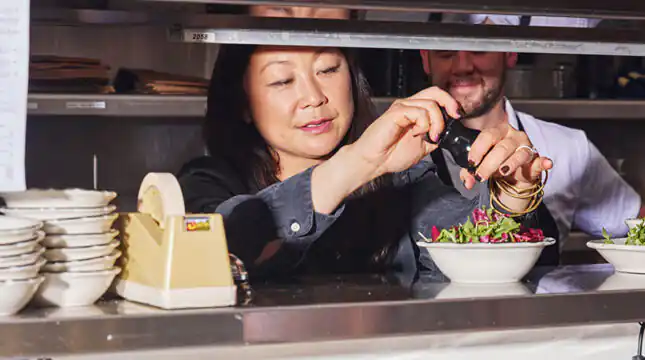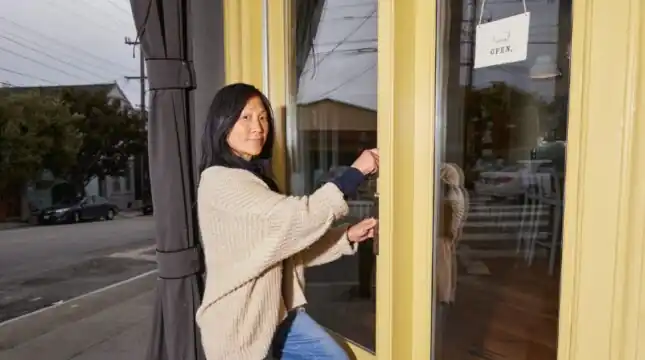Who oversees restaurant laws?
For local laws, contact your regional health department for assistance. They can provide a step-by-step guide for what’s required in your city.
Various regulatory government agencies oversee different aspects of broader restaurant rules. These agencies typically have a state or local city and county office:
Space regulations: Restaurant zoning and construction requirements
The restaurant laws around your business’ physical space require you to consider:
- Municipal zoning laws
- City entertainment by-laws, specifically hours of operation, alcohol and noise
- Construction permits
- Permission from the city to develop a new site
- Licensed construction teams
These rules govern signing a lease or purchasing a building, as well as renovations to make the space functional as a restaurant.
Dig into local restaurant laws and city regulations for guidance. Here are some common requirements:
- The building must be zoned for use as a restaurant.
- The district or block must allow for an activity that coincides with your business hours.
- Investigate whether you can have outdoor seating, alcohol and entertainment.
Review these requirements as early as possible in the planning/construction process. After all, you don’t want to be open your first week and then discover you’re not allowed to serve alcohol on the patio or that patrons have to park three blocks away.
Once you have the space, you have to build it up. That means hiring designers, engineers and contractors to do the job. Find licensed businesses that can keep your project on schedule.
Be sure to comply with city inspection requirements during construction. You may need to get approvals along the way. Some cities may ask you to submit your development plans for approval before construction even starts.
Administrative regulations: Business licenses and inspections for restaurants
Both the city’s health department and planning department will want to have a say in your restaurant. When you open your doors, you’ll have to continue to keep the area up to code for safety and health standards. If you don’t pass these inspections, the city may close the restaurant for public health concerns.
You’ll likely have to obtain several licenses or permits from the city to carry on the restaurant’s business. Here are some examples of permits or licenses you may need:
- Business operations
- Permission to serve alcohol
- Live entertainment
- Food service
- Building occupancy
- Employer identification number
- Employee health and safety
Some counties have more unique requirements. For example, you need to have a license to put a pool table in your restaurant in some places. It’s a lot to think about, in addition to the restaurant startup costs you’ll have to cover.
Licenses may need to be renewed regularly. For example, you may need to renew a liquor license annually.
Also, just getting the license doesn’t mean you automatically keep it forever. Many licenses come with additional requirements. Compliance is a big part of how you run your business, so carefully review what you have to do to keep your license.
In your rush to keep the authorities happy, don’t forget to protect yourself as well. Business insurance can offer coverage in case your business experiences unexpected mishaps. You can get industry-specific protection with restaurant insurance appropriate for your business.
Food preparation regulations: Restaurant and food business health and safety
Your city will ensure your restaurant complies with local health and safety standards. These restaurant regulations are in place to protect patrons and staff. The restaurant rules to follow include:
- Cleanliness and food safety practices to prevent foodborne illness.
- Physical safety requirements for employees and patrons.
- Protection against hazardous materials.
Surprise restaurant inspections can happen at any time. The city oversees the health and safety of patrons, so restaurant rules and regulations often permit them to do random checks of the kitchen, dining room and the entire establishment.
Some counties require every person who comes in contact with food to get a food handlers card. And most states require that at least one manager on staff needs to be certified in food safety or food protection.
Management regulations: Labor laws for the food service industry
As a restaurant owner, you’re also an employer. Restaurant labor laws apply to servers, food preparation staff or anyone else on your payroll. As part of your business licensing process, you may be required to learn how to prevent workplace accidents. Your state is also likely to require workers’ compensation insurance for your team.
Rules around workers usually cover:
- Hours of work, wage laws and required breaks
- Policies around hiring and firing
Since some restaurants serve alcohol, there may be additional regulations in play to keep your staff safe from the risks associated with serving liquor.
Following these rules will help make sure you don’t have issues with the Department of Labor.






